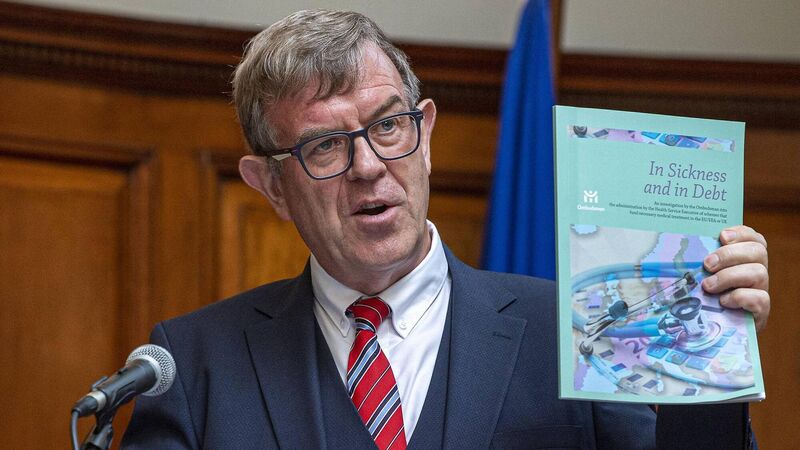More than 200 HSE reimbursement cases reopened, says Ombudsman

Ombudsman Ger Deering addresses the Irish Patients Association Conference in Dublin on Monday. Pictures: Michael Chester
A patient was made to feel like “a liar and a criminal” by the HSE when trying to get reimbursed for medical treatment abroad, the Ombudsman told a conference today.
Ger Deering recently published a scathing report on the treatment abroad scheme which allows EU patients to travel to other EU countries for medical treatment. The cost is then reimbursed by their national health body.










